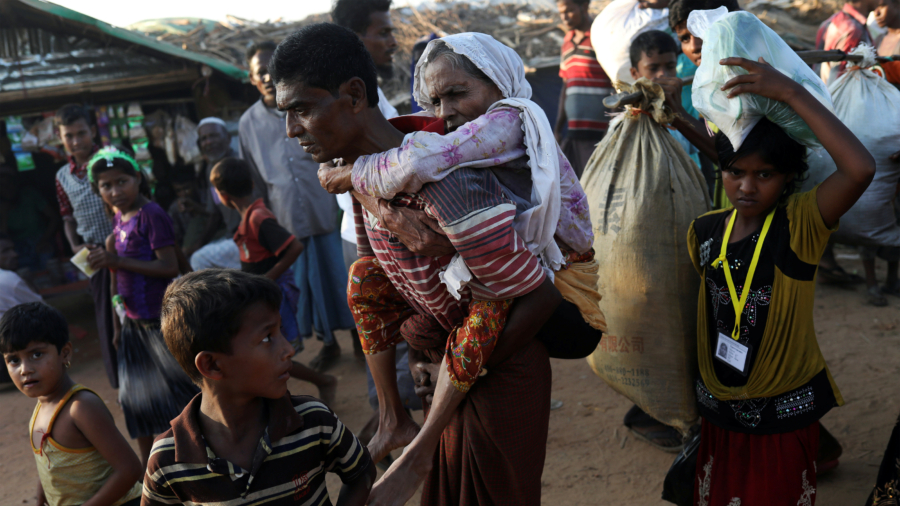NAYPYITAW–Burma’s de facto leader Aung San Suu Kyi said on Tuesday, Nov. 21, she hopes talks with Bangladesh this week will result in a memorandum of understanding on the “safe and voluntary return” of Rohingya who fled to Bangladesh in the past three months.
A counter-insurgency operation launched in Burma’s Rakhine State has driven more than 600,000 Rohingya out of the Buddhist-majority country since late August.
Rights groups have accused Burma’s military of atrocities, including mass rape, against Rohingya during the clearance operation.

“We can’t say whether it has happened or not,” Suu Kyi told reporters in response to a question about human rights violations at the end of a meeting of senior officials at an Asia-Europe Meeting (ASEM) in Burma’s capital Naypyitaw.
“As a responsibility of the government, we have to make sure that it won’t happen.”
Her less than two-year old civilian government has faced heavy international criticism for its response to the crisis, though it has no control over the generals it has to share power with under Burma’s transition to power after decades of military rule.
Turning to the question of repatriation of Rohingya, Suu Kyi said discussions would be held with the Bangladesh foreign minister on Wednesday and Thursday. Officials from both countries began discussions last month on how to process applications by Rohingya wanting to return to Burma.
“We hope that this would result in an MOU (memorandum of understanding) signed quickly, which would enable us to start the safe and voluntarily return of all of those who have gone across the border,” Suu Kyi said.
The Nobel laureate did not use the term “Rohingya.” Burma rejects use of the term for the Muslim and part Hindu minority, which is not on an official list of the country’s ethnic groups.
The Rohingya are largely stateless and many people in Burma view them as illegal immigrants from Bangladesh.

Suu Kyi said Burma would follow the framework of an agreement reached in the 1990s to cover the earlier repatriation of Rohingya who had fled to Bangladesh to escape previous bouts of ethnic violence.
That agreement did not address the citizenship status of Rohingya, and Bangladesh has been pressing for a repatriation process that provided Rohingya with more safeguards this time.
“It’s on the basis of residency…this was agreed by the two governments long time ago with success, so this will be formula we will continue to follow,” she said.
Earlier talks between the two countries reached a broad agreement to work out a repatriation deal, but a senior Burma official later accused Bangladesh of dragging its feet in order to secure funding from aid agencies for hosting the refugees.
It was hard to tell exactly how close Burma and Bangladesh were to an agreement, Suu Kyi said.
Suu Kyi, Burma’s state counsellor and foreign affairs minister, said the country was doing everything it could to “make sure security is maintained” in Rakhine, but warned that “it takes time” to resolve the issues there.
It was unclear, however, whether a safe return was possible, or advisable, for the thousands of Rohingya women and children still stranded on the beaches trying to flee hunger and instability in Rakhine.
Burma intends to resettle most refugees who return in new “model villages,” rather than on the land they previously occupied, an approach the United Nations has criticized in the past as effectively creating permanent camps.
By Yimou Lee, Thu Thu Aung and Simon Lewis


